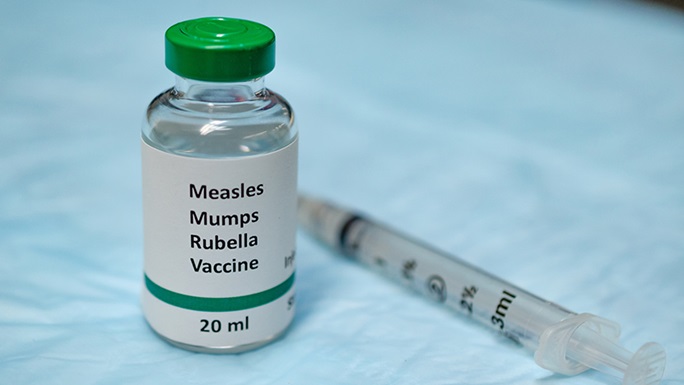NYC Issues Vaccine Measles Order
April 26, 2019
The regular appearance of new measles cases shows that 2019 is likely to reach the highest number of cases in the century. A recent and threatening measles outbreak in NYC is being met with a firm response by city legislators, ordering mandatory vaccinations for all workers and residents of the “11205, 11206, 11211 and/or 11249 zip codes” who are medically able to receive the vaccine.
This order, which went into effect on Monday, was met by a lawsuit by five New York City mothers who claimed that the mandatory vaccines violated their religious freedoms. However, the state supreme court dismissed the lawsuit lawsuit, concluding that the situation was severe enough to justify such measures.
The state has issued fines of $1000 for those failing to receive the MMR (measles, mumps, and rubella) vaccine within 48 hours of the issued order. In addition, schools will be closed if they fail to provide vaccination records. Such measures are being taken as a last resort response to prevent the spread of the disease, especially to vulnerable individuals.
Not receiving the MMR vaccine is not only dangerous to an individual, but also an entire community. A phenomenon known as “herd immunity” protects unvaccinated individuals in a community, given that a sufficient proportion of the population has been vaccinated. Through herd immunity, a largely vaccinated population can shield the disease from reaching certain vulnerable individuals. According to the CDC, there are a variety of people who cannot receive the MMR vaccine, including people with allergies, pregnant individuals, immunocompromised patients, and those with tuberculosis. The measles herd immunity threshold is 90-95%, meaning that 90-95% of the population needs to be vaccinated to protect the remaining few.
This high proportion means that almost anyone who is able to receive the vaccine needs to get it to protect those at risk. However, in communities such as the Ultra-Orthodox Jewish communities in New York, there is an extremely low rate of vaccination that fails to take advantage of this herd immunity.
Although these actions are taken in the best interest of the health of the population, they spark a relevant ethical discussion: can such medical procedures be forced? If so, what are acceptable repercussions for failing to undergo these required procedures? These ethical dilemmas are largely dealt with on a case-by-case basis, but the increasing threat of misinformation (such as the anti-vaccination movement) make them even more relevant and pressing.



